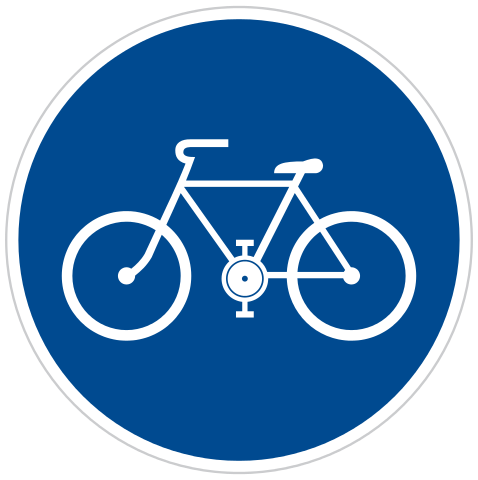Ignoring that my country doesn’t allow Idaho Stops, or that my Provincial Government wants to actively kill cyclists by removing safe cycling infrastructure, I’ve always wondered if there’s a reason why cyclists aren’t allowed to simply ride through an intersection like the one in the photo.
I’m talking about the right side, where the bike lane could extend through the intersection without interfering with other vehicles, including those that are turning left.
This would not only keep those stops safer (clears the cyclist out of the intersection), but would just make sense from a transportation efficiency standpoint.
Is there something I’m missing, or do cyclists have to stop only because motorists would take a tantrum if they weren’t required to?


Do they not have crosswalks in States that permit Idaho Stops? How are those intersections managed (all of them, really)?
Cars are the danger at any stop, not bikes in the very far right of the road. But yes, if pedestrians are crossing, everyone should be stopping.
That would be nice, except that motorists aren’t following those simple rules, and they are the ones running people over. When cyclists follow rules designed for large vehicles, it actually doesn’t make them safer.
This is why having the same rules for “everyone” doesn’t work. Everyone should understand the responsibilities of other road users (including when pedestrians should be given the right of way and what that looks like), but not everyone should have the same rules if it doesn’t make sense or puts them at greater risk.
The rule for an Idaho stop, at least in my area, is that you can only do it if there’s no traffic. That means no cars, no other bikes, no pedestrians.
Exactly! So why shouldn’t an Idaho stop be the default for an intersection like this, even when Idaho stops aren’t permitted for all intersections?
It should. I saw someone else suggest that it’s because someone turning left might make a wide turn, but… that’s nonsense. No city planner paints lines to allow wide turns. I would suggest a sign that says “Bicyclists yield to pedestrians”, but that’s about it.
Ah, yes, everyone should do the right thing.
But here’s the issue, - everyone is human. We make mistakes. So the rules of the road are about mitigating risk.
As some who’s driven, cycled, and motorcycled something around a million miles in my life, I’ve had many circumstances where I avoided problems because I was (fortunately) being conservative.
And I’ve been lucky, many, many times where I wasn’t being as attentive as I should be, but the other person was.
You’re saying we should clip those corners, reducing the margins.
Except that “clipping corners” would improve safety.
Basically, what I’ve asked is “why isn’t an Idaho Stop the default at an intersection like this?”, knowing that Idaho stops have been shown time and time again to improve cyclist safety and makes cycling easier.
Of course, if you approach an intersection and it appears like a conflict could occur, be mindful and make sure everyone is paying attention.
But if there are no cars or pedestrians at these 3-way intersections, cyclists should have no problem simply riding through. This is keeping in mind that we are on the far edge of the road, where it would be highly unlikely that a conflict would occur. If a motorist attempted the same, it would put others in danger.